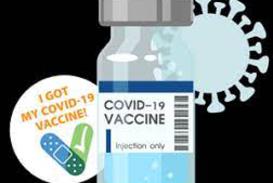GENE THERAPY: ROCHE COMMITS OVER $1 BILLION IN SAREPTA THERAPEUTICS DEAL
by John G. Baresky on 12/26/19
Gene
therapy continues to draw multi-billion dollar investments from biotech and
pharmaceutical companies worldwide
Roche (
OTCMKTS: RHHBY ) is committing over $1 billion dollars up front to Sarepta Therapeutics (
NASDAQ: SRPT ) in a licensing deal with
substantially more to follow depending upon the progress of SRP-9001, an investigational gene therapy targeting Duchenne muscular dystrophy.
Roche and
Sarepta develop a product development and licensing deal
Based on its $1.15 billion deal with Sarepta, Roche will have global rights to launch and market SRP-9001 except for the United States:
- Sarepta received $750 million in cash from Roche
- Roche purchased about $400 million of Sarepta stock at $158. 59 per share
For now
Sarepta, based in Cambridge, Massachusetts, has decided to retain the U.S. market sector for its own commercial
ventures. Sarepta will continue to
manage clinical development and production manufacturing of SRP-9001; Roche has
agreed to cover half of the global clinical development costs. If the drug
meets unspecified regulatory and sales milestones, Sarepta could receive up to
$1.7 billion more in funds from Roche, as well as royalties on any net sales,
if SRP-9001 achieves certain regulatory approval requirements as well as sales
revenue targets.
The patient care science of SRP-9001
SRP-9001 has the potential to be a breakthrough therapy in a challenging patient care sector. SRP-9001 is presently in Phase II clinical development. The agent is designed to deliver the micro-dystrophin-encoding gene directly to the muscle tissue for the targeted production of the micro-dystrophin protein.
Sarepta's strategy to fund clinical trials for SRP-9001
With Roche’s investment, Sarepta
can continue to invest in the development of the product and conduct clinical
trials. They are selecting patients for the two-part Phase II
SRP-9001-102; a 40-patient study focused on safety and efficacy of SRP-9001 in
a 48-week randomized, double-blinded, placebo-controlled timeframe plus a
96-week, double-blinded extension period. This clinical study program has an
anticipated wrap up targeting the 4th quarter of 2022.
Based on positive
results, Sarepta and Roche will pursue marketing opportunities worldwide
If the
product is approved, Sarepta will have funds to orchestrate commercialization initiatives to launch the product in the United States. Roche, headquartered in Basel, Switzerland, has the global expertise
and commercial resources that will enable it to move forward in other markets around
the world. Roche, which just completed a $4.3 billion acquisition of gene therapy
company Spark Therapeutics, will be a lucrative partner for Sarepta to market
other gene therapy pipeline products with in the future or perhaps be wholly-acquired
by Roche.
Partnerships and licensing
agreements are popular options for large and mid-sized biotech and
pharmaceutical companies to explore gene therapy commercial opportunities while
avoiding risk
Gene therapy and other
highly-focused clinical research or product development firms do not always
have the financial resources or business structure to orchestrate a complete
commercial lifecycle of their work. Established, publicly-held drug companies frequently
collaborate with gene therapy and other smaller, highly advanced biotherapeutic
concerns. As pipeline candidates move through the clinical trials process, it
is easier to gauge the likelihood of their chances for approval by regulators.
They provide financial support to these activities and when it appears their
success is almost imminent, larger investments and commitments are made to
assure trial completion, approval and subsequent clinical / commercial launch
traction.
The high cost and high risk involved with gene therapy research is a barrier to entry; less firms and highly focused therapies reduce competition in the sector
As an advanced area of life sciences with potential to cure diseases by replacing missing or mutated versions of a gene found in a patient’s cells with healthy copies gene therapy is not a sector many companies can participate in based on time, clinical and financial commitments. Depending on the patient and the genetic-based issue involved, gene therapy in has been proven to significantly reduce or eliminate complex, life threatening conditions. Success in the gene therapy sector also enriches the clinical insights and manufacturing attributes of their organizations which can be applied in other product development ventures outside of the gene therapy realm.
LinkedIn: John G. Baresky
Twitter: Healthcare & Content Marketing Guy

